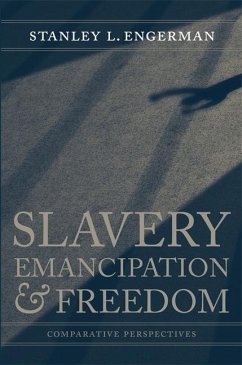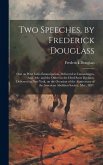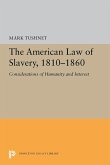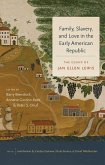It is beyond dispute that slavery has always been abhorrent and, wherever it still exists, should be abolished. Where most scholarly writing on slavery in the past has concentrated on examining slaves as victims, recent writings have taken a more nuanced view of slavery in focusing on the slaves themselves and their cultural and psychological accomplishments in captivity. Also, studies of the system's profitability have shown that, from an economic perspective, slavery worked for the slaveholders and their society. In Slavery, Emancipation, and Freedom, the distinguished scholar Stanley Engerman succinctly synthesizes current scholarship and addresses questions that are critical to understanding the nature of slavery.
Hinweis: Dieser Artikel kann nur an eine deutsche Lieferadresse ausgeliefert werden.
Hinweis: Dieser Artikel kann nur an eine deutsche Lieferadresse ausgeliefert werden.



![The British West India Colonies In Connection With Slavery, Emancipation, Etc., By A Resident In The West Indies For Thirteen Years [-campbell] With An Intr. And Remarks By A Late Stipendiary Magistrate In Jamaica [s. Bourne] The British West India Colonies In Connection With Slavery, Emancipation, Etc., By A Resident In The West Indies For Thirteen Years [-campbell] With An Intr. And Remarks By A Late Stipendiary Magistrate In Jamaica [s. Bourne]](https://bilder.buecher.de/produkte/68/68661/68661019m.jpg)




